Sports
Game on… everywhere but home | The Express Tribune
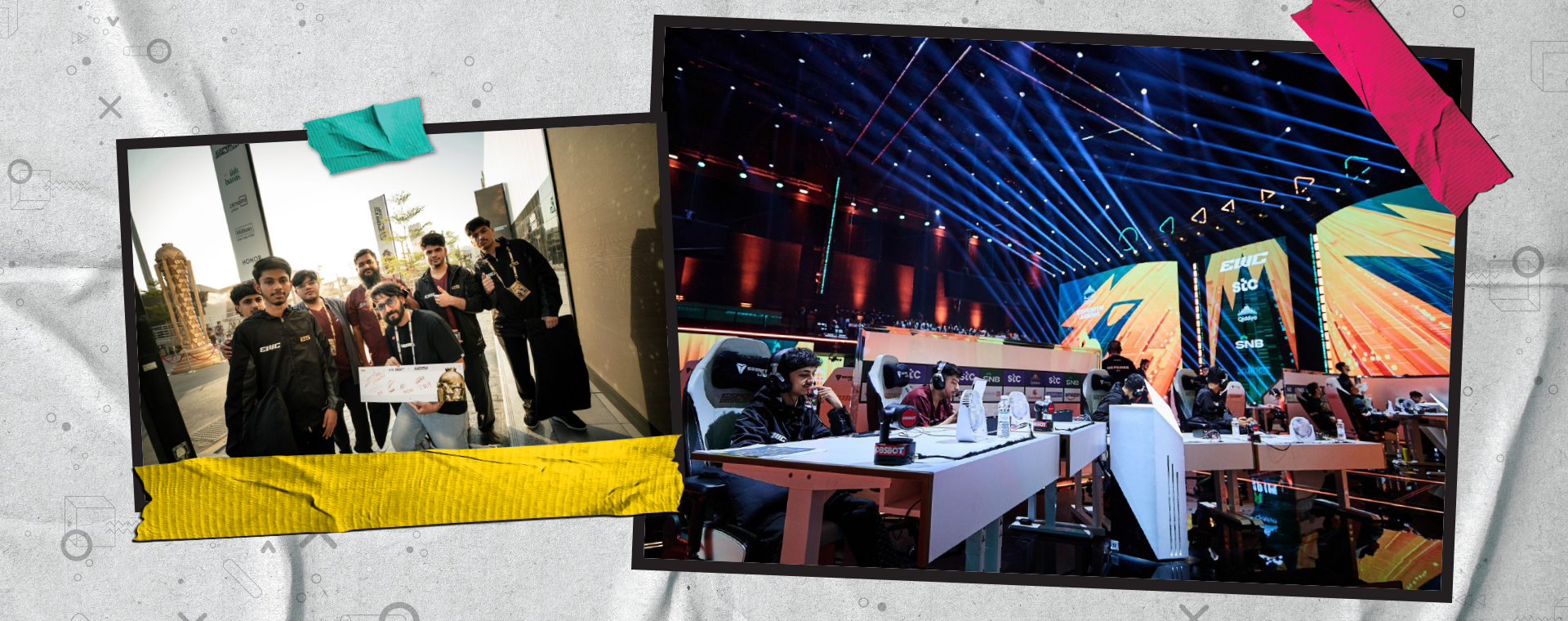
PUBLISHED
August 17, 2025
KARACHI:
When you hear the word esports, which country comes to mind first? For most people, the answer is simple: South Korea. A place where esports is not just a pastime but an institution, a culture built on world-class arenas and year-round leagues. But shift the lens to Tekken, and another name rises almost instantly. Arslan Ash. Alongside him, just a handful of others whose names you can count on your fingertips. These are the players who have carried Pakistan’s flag to the world stage, who have fought against the best and made sure their victories echo back home.
What makes this remarkable is not just the wins, but where they come from. In a country with almost no facilities, no formal support system, and barely any structured tournaments through the year, raw talent has found a way to shine. Pakistani players, with little more than determination and self-made training routines, are giving the toughest competition to Korean professionals who spend all year inside top-tier academies. What does that tell us? If Pakistan were to receive the same facilities as Korea, could it dominate not just Tekken but every major esport? The glimpses already suggest it might.
Pakistan’s strength is already visible. It is shining in Tekken, where Arslan Ash’s sixth major title added another chapter to his extraordinary career. It has broken into global mobile gaming with a PUBG Mobile team that recently qualified for its first ever Esports World Cup, marking an unprecedented moment for the country. And in Seoul, Pakistan stunned the world with a Tekken 8 team victory at the Nations Cup, proving that this was not a one-man story but the rise of a collective force.
These are achievements worth celebrating, but they also leave behind a pressing question. If Pakistan can do this much with so little, what could happen if the talent was nurtured, if the players had the right platforms, and if the opportunities to face international pressure were not rare but routine? The answers lie in how the future of esports in Pakistan is shaped, and whether the momentum can be transformed into something lasting. Still Pakistan is performing high on the international stage and is coming in lime light with one game at a time.
Pakistan’s international esports rise
At the Nations Cup in Seoul earlier this year, when the world’s best Tekken players gathered, the names on Pakistan’s side spoke for themselves. Arslan Siddiqui aka Arslan Ash and Hafiz Tanveer from Twisted Minds, Atif Ijaz aka Atif Butt, Muhammad Farzeen, and Nauman Chaudhry aka Numan Ch from Team Falcons, Usama Abbasi from ROC Esports, and Adeel Sheikh aka The Jon form Al Qadsiah, all representing Pakistan. Each a force in his own right, each carrying a different chapter of Pakistan’s Tekken story. Together they pulled off a victory that stunned South Korea on its own turf, a country long considered the birthplace of competitive Tekken dominance.
The story does not end there. Pakistan will now be seen again on one of the biggest stages, the Esports World Cup. Alongside the Tekken champions, the PUBG Mobile squad 4Thrives, after winning the national championship and then conquering the South Asian showdown, earned their ticket to the global finals. For the first time, a Pakistani team in mobile gaming walked into the world’s premier esports event, and faced the giants of China, South Korea, and the Middle East and ended up finishing at a sixth place out of 24 team winning a prize money of $157,500.
For players themselves, stepping into such tournaments is not just about competing, but survival. “This is my second time competing at the Esports World Cup. The prize money here is on another level. Even if you win just one match, you can earn enough to support yourself and your family back home. That is what makes this event so special,” says Bilal Ilyas who represented Pakistan at the Tekken 8 competition at Esports World Cup.
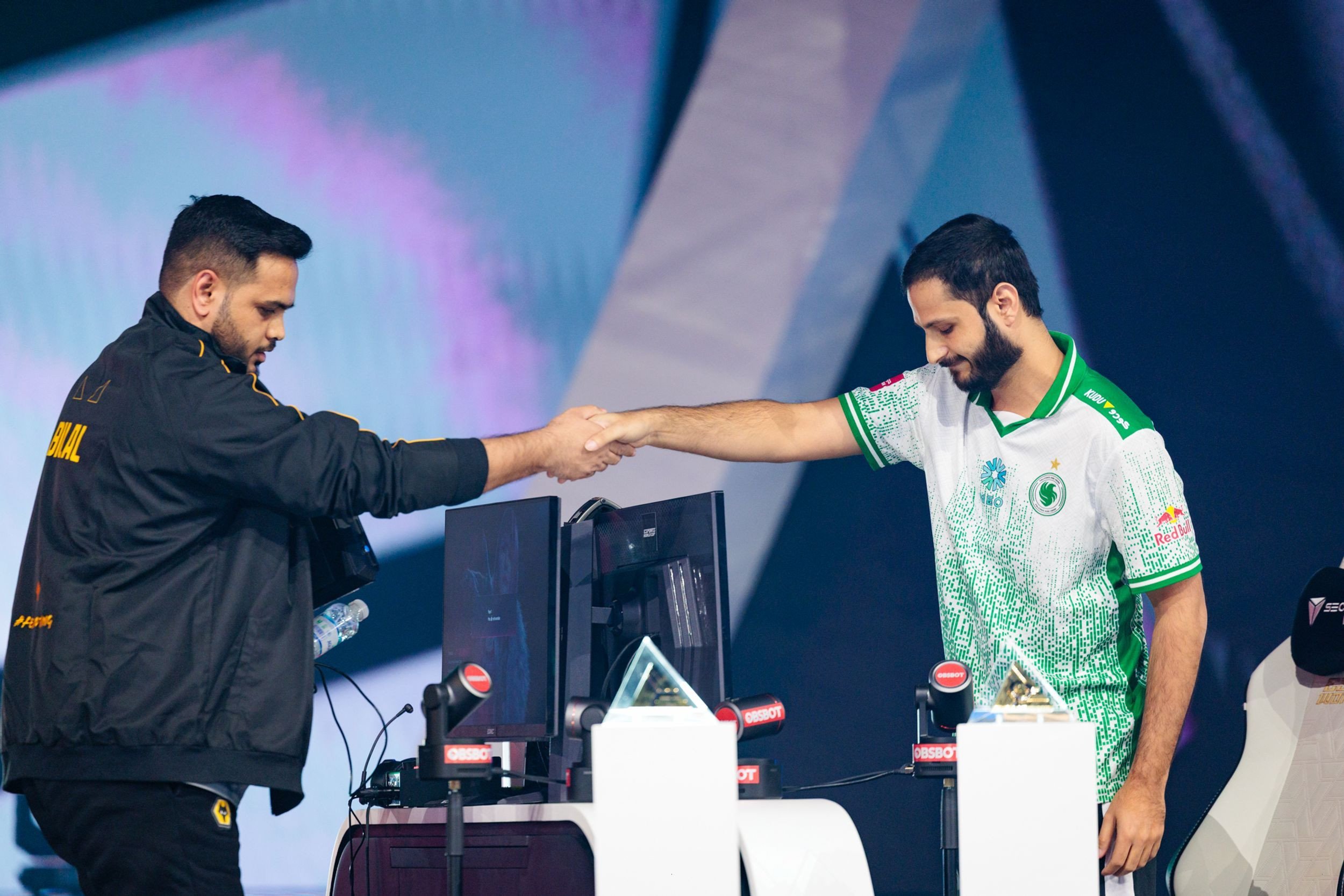
For Pakistan, these victories are not just trophies. They are statements. They signal that talent from Lahore, Karachi, and Peshawar can stand in the same arena as names the world reveres. They force the question: are the world’s top esports nations beginning to see Pakistan as a threat? On stage, perhaps yes. But behind the stage, when eyes turn to infrastructure and facilities, the perception shifts. There is almost disbelief, sometimes even dismissal, because while Pakistan’s players perform miracles internationally, at home they return to cramped gaming cafés, improvised practice sessions, and a structure that is years behind global standards.
This is where the story deepens. The grind of a Pakistani esports player is unlike anything in South Korea, Japan, or even the Middle East. Here, practice is not inside state-of-the-art arenas but often in bedrooms with borrowed equipment or in cafés where power outages interrupt tournaments. Funding is uncertain, sometimes from personal savings, sometimes from a sponsor found at the last minute. Arslan Ash himself admitted that he once thought of leaving competitive gaming altogether because of financial pressures, only to return because the game was his calling. Others describe the emotional rollercoaster of chasing international visas, booking tickets through loans, or preparing for a tournament without being sure if they will even be able to attend.
Bilal explained that most of the country’s Tekken stars are not from privileged backgrounds, which makes their rise even more remarkable. “Most of us who are performing well in Tekken come from very modest or even poor backgrounds. We did not grow up with opportunities. Whatever we have now is because of years of struggle, support from friends, and sponsors who believed in us later,” he told The Express Tribune.
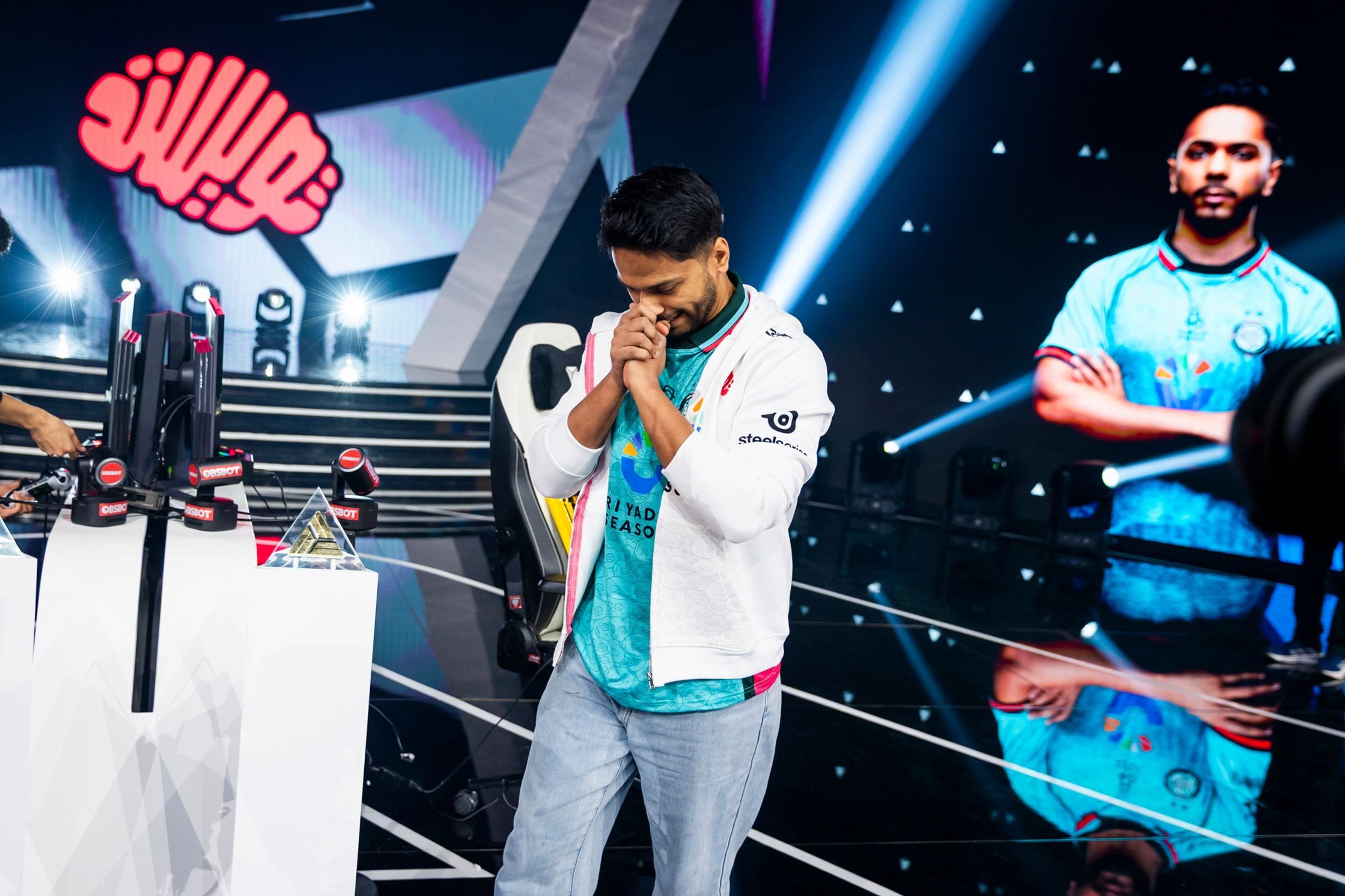
He added that how Pakistani players build their strength in small, improvised groups. “We don’t have team houses or arenas like Korea. We practice offline in small groups, often from homes or cafés. If someone beats us, we work harder the next day to take revenge in the game. That passion is what makes us strong,” shared Bilal.
And yet, in those very conditions lies the resilience that shocks the world. When Arslan Ash beat global champions, when Atif Butt lifted his second international trophy, when the PUBG Mobile team booked their slot for the World Cup, it was not just victory – it was survival. It was proof that sheer determination, talent, and countless late-night practice sessions could overcome the lack of system and structure.
But victories alone cannot sustain momentum forever. The gap between what Pakistani players achieve and what they endure continues to widen. As global esports grows more organized, the question is not just how Pakistan’s players will win, but how long they can keep winning in a vacuum.
And that is where the story shifts, from the players’ extraordinary journeys to the country they represent. To understand what comes next, one has to look at the state of esports in Pakistan itself.
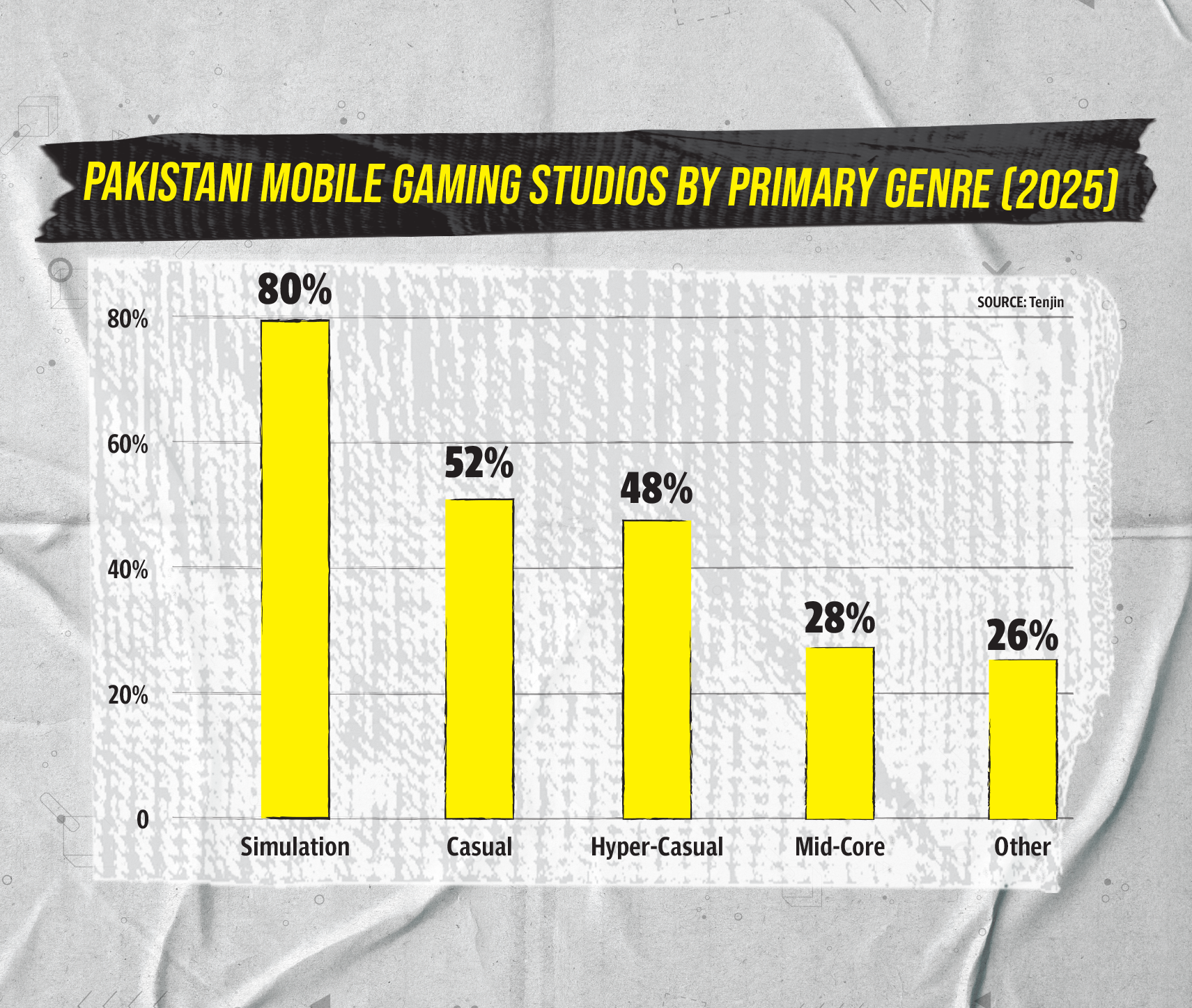
The state of esports in Pakistan
To understand Pakistan’s esports story, you need to step away from the flashing lights of international arenas and look at what lies at home. The victories may make headlines abroad, but the reality for players on the ground is still far from professional. There is no permanent national esports arena in the country. Players often practice in scattered cafés or small gaming lounges in Lahore, Karachi, and Islamabad, where the quality of equipment and connectivity varies from place to place. Big festivals like Gamers Galaxy have brought crowds to venues like the Pak-China Friendship Centre, but such events come once in a while with last being held in April last year and there are no signs of being held this year yet. They do not add up to a year-round calendar. The rest of the time, players are left to organize scrims on their own, often interrupted by slow internet speeds or power cuts.
The government has taken its first step by announcing a National Esports Policy. Drafted with help from the Commonwealth Secretariat and the British Esports Federation, the plan includes setting up a Pakistan Esports Federation, launching training programmes, and eventually creating digital arenas. The recognition of esports as a sport is also in the pipeline. It is a start, but still a long way from the structures that already exist in countries where esports has been mainstream for years.
The comparison with South Korea is telling. Korea has an actual law, the Act on Promotion of E-Sports, which empowers the state to build arenas, fund talent, and run leagues. The Korea e-Sports Association (KeSPA) has long coordinated events, lobbied for hosting rights, and created a structured ladder for talent. Their venues are purpose-built, like LoL Park in Seoul or the Busan Esports Arena, where everything from broadcast booths to practice rooms is built into the design. At the grassroots, PC bangs – high-spec cafés – remain an accessible training ground for aspiring players, and even today thousands operate across the country. Fast internet, among the world’s best, means practice is smooth, tournaments are broadcast-ready, and players train without latency issues.
Even basic equipment becomes a hurdle for Pakistan’s players. “In Pakistan, if your arcade stick breaks or your monitor stops working, it’s very difficult to replace. The monitors used in international tournaments aren’t available here, and if we import them the customs duties are so high that it becomes unaffordable,” explained Bilal.
By contrast, Pakistan ranks among the slowest in global broadband and mobile internet tiers. Even professional players have admitted that qualifying matches often suffer because of lag. In Pakistan, there are no academies devoted to esports. A few private bootcamps exist here and there, but they are small and scattered. Universities have only just started to acknowledge competitive gaming, though it is still seen as something experimental rather than a serious academic track. In South Korea, the story could not be more different. Esports is firmly part of the education system. At Chung-Ang University, professional gamers are treated the same way as athletes in traditional sports, while at Yonsei University students can even study the business side of gaming as a proper course.
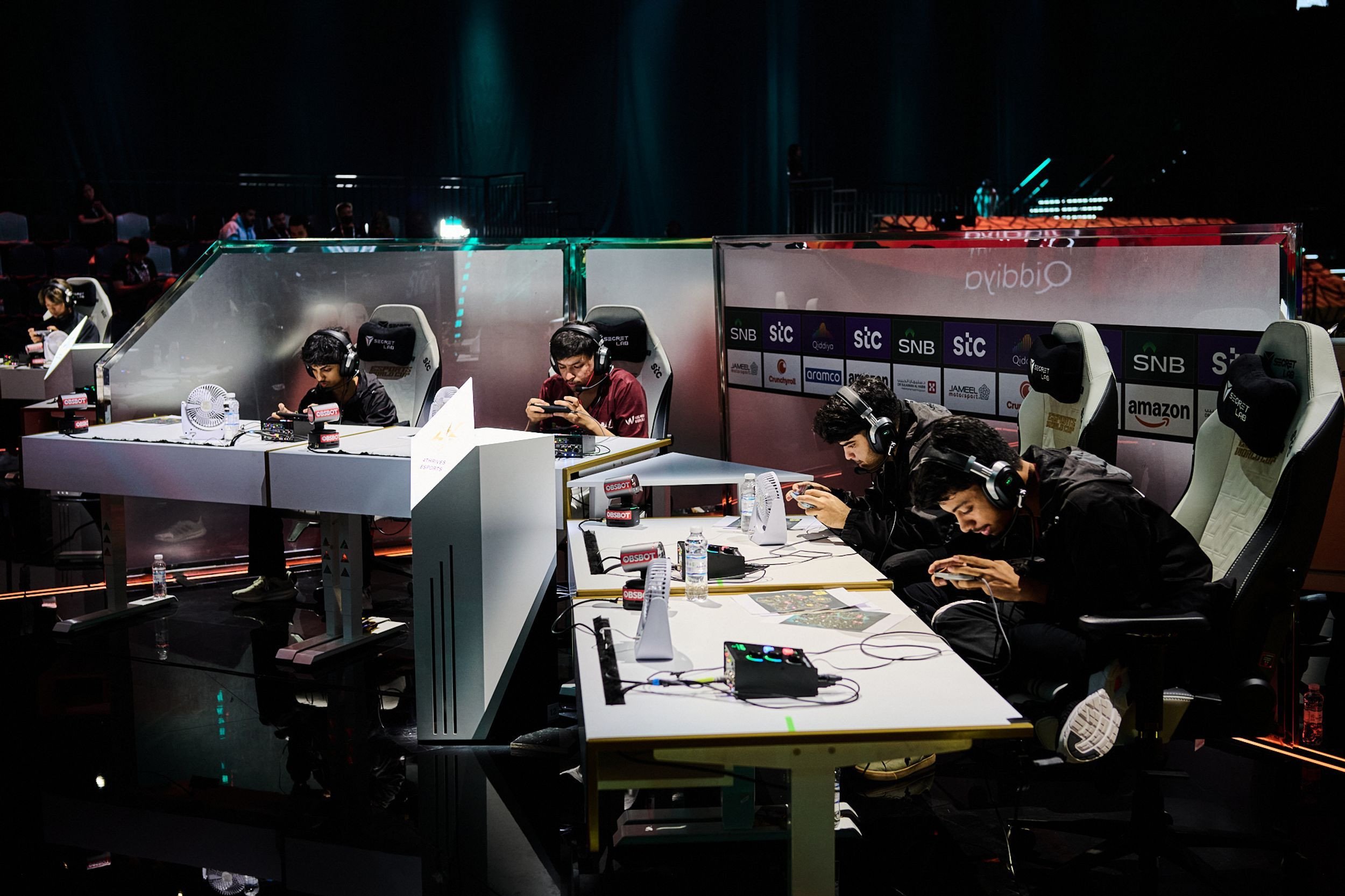
Money and security draw another sharp line between the two countries. Pakistani players often have to arrange everything themselves when competing abroad. Some borrow money from family, others scrape together sponsorships at the last minute, and almost all have stories of struggling with visas and tickets before they even get a chance to sit in front of the screen. In Korea, most players are attached to professional teams that pay them salaries, line up brand sponsors, and give them structured facilities to train in. For them, the only real focus is the game. For Pakistanis, the fight begins much earlier.
Bilal was quick to point out that most of Pakistan’s esports scene is already being carried by private companies, not the government. “We don’t really get support at the government level. Our real support comes from sponsors, most of them from outside Pakistan – Dubai, Saudi Arabia, America. They pay us salaries and cover our expenses. The only thing we need from the government is help with visas. So many Pakistani players never get to perform internationally simply because they don’t get visas on time,” he shared.
The Middle East has also raced ahead in a way that Pakistan has not. Saudi Arabia and the UAE are putting in heavy investment, building modern arenas, hosting global events, and presenting themselves as international hubs for esports. Cities like Riyadh and Dubai are now on the global esports calendar. Pakistani players who turn up there often feel like outsiders. They carry their raw talent into these glossy arenas, while their opponents arrive with the backing of proper systems, coaches, and professional leagues.
This gap shows itself most clearly in everyday life. Korean professionals practice on fast internet connections, often living together in team houses where coaches and analysts monitor their progress. Pakistani players are still playing from their bedrooms or in small cafés, usually late at night, with unreliable connections and limited competition. In Korea, a dense calendar of leagues means players are constantly under pressure, playing matches that mirror the intensity of the world stage. In Pakistan, players can go months without a single local tournament. For them, international qualifiers are often the only chance to test themselves — and the only real rehearsal for the pressure that awaits abroad.
And yet, despite all of this, Pakistan still produces champions. That is what makes the story so striking. The resilience is unmatched, but the question remains; how long can talent alone keep bridging a gap of this scale? If the policy promises are realized, if infrastructure begins to take shape, Pakistan could very well be the next great force in esports. Until then, victories will continue to come from players fighting against the odds, rather than because of the system around them.
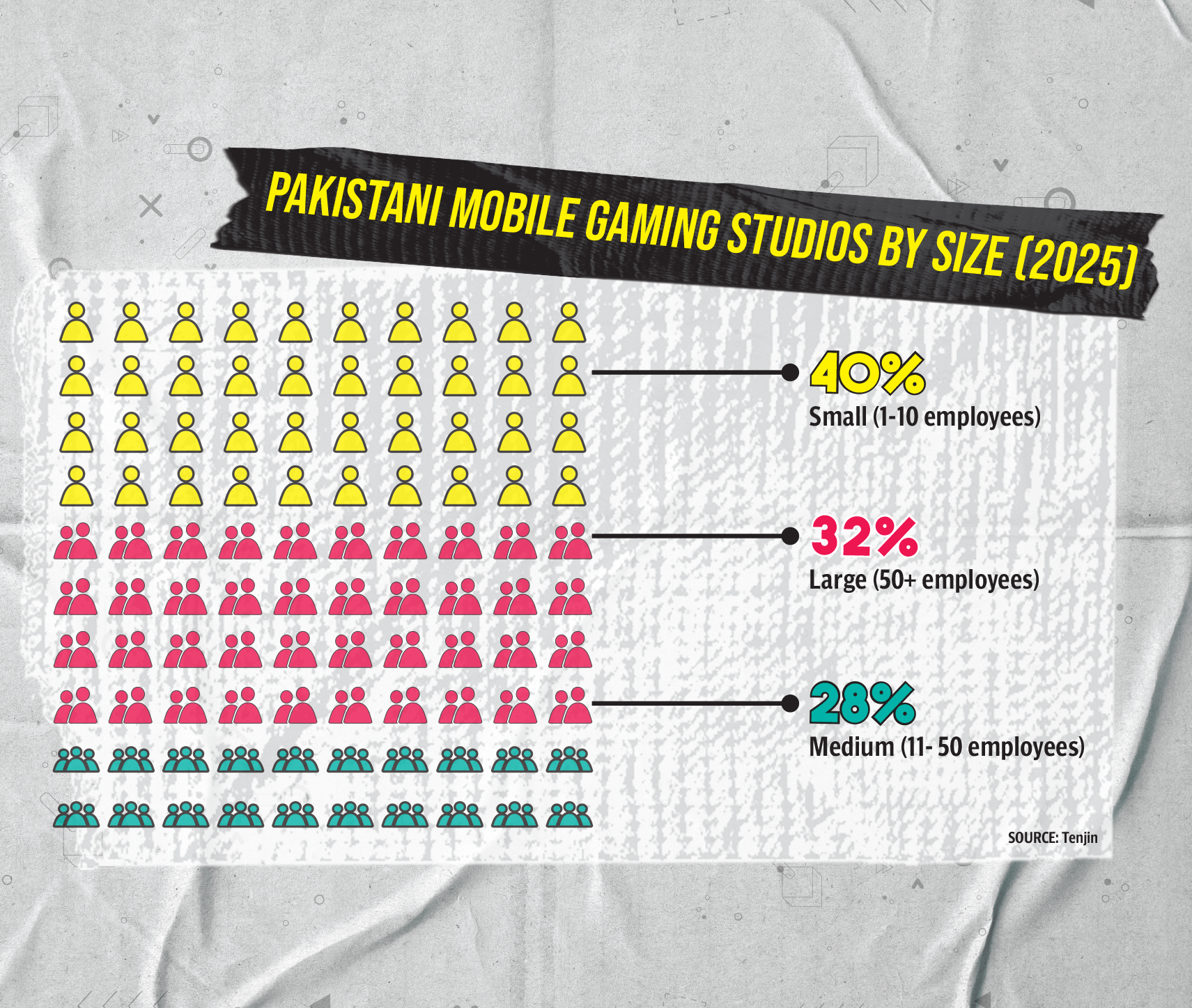
National policy and the glitch
For the first time, Pakistan has placed esports on the government’s agenda. The Ministry of Information Technology and Telecommunication (MoITT) is leading the effort to draft a National Esports Policy, with technical support from the Commonwealth Secretariat and the British Esports Federation, as well as coordination through the Prime Minister’s Youth Programme. The plan includes the creation of a Pakistan Esports Federation, development of training programmes, and the eventual setup of digital arenas where players can compete and practice in a professional environment. Recognition of esports as a formal sport has also been signaled.
On paper, these are encouraging steps. For years, players have relied only on private cafés, occasional festivals, or their own living rooms to sharpen their skills. A national federation and a structured policy could change that, by creating pathways for talent, introducing standardized rules, and providing government-backed legitimacy for the industry.
For Bilal, the most disappointing part is not just the lack of facilities, but the silence when players do manage to win on the world stage. “Recently many Pakistani players have won big tournaments, but not a single congratulatory message or recognition has come from the government. We celebrate our cricket stars, but our esports players are ignored. Even a small gesture of recognition would go a long way,” he said.
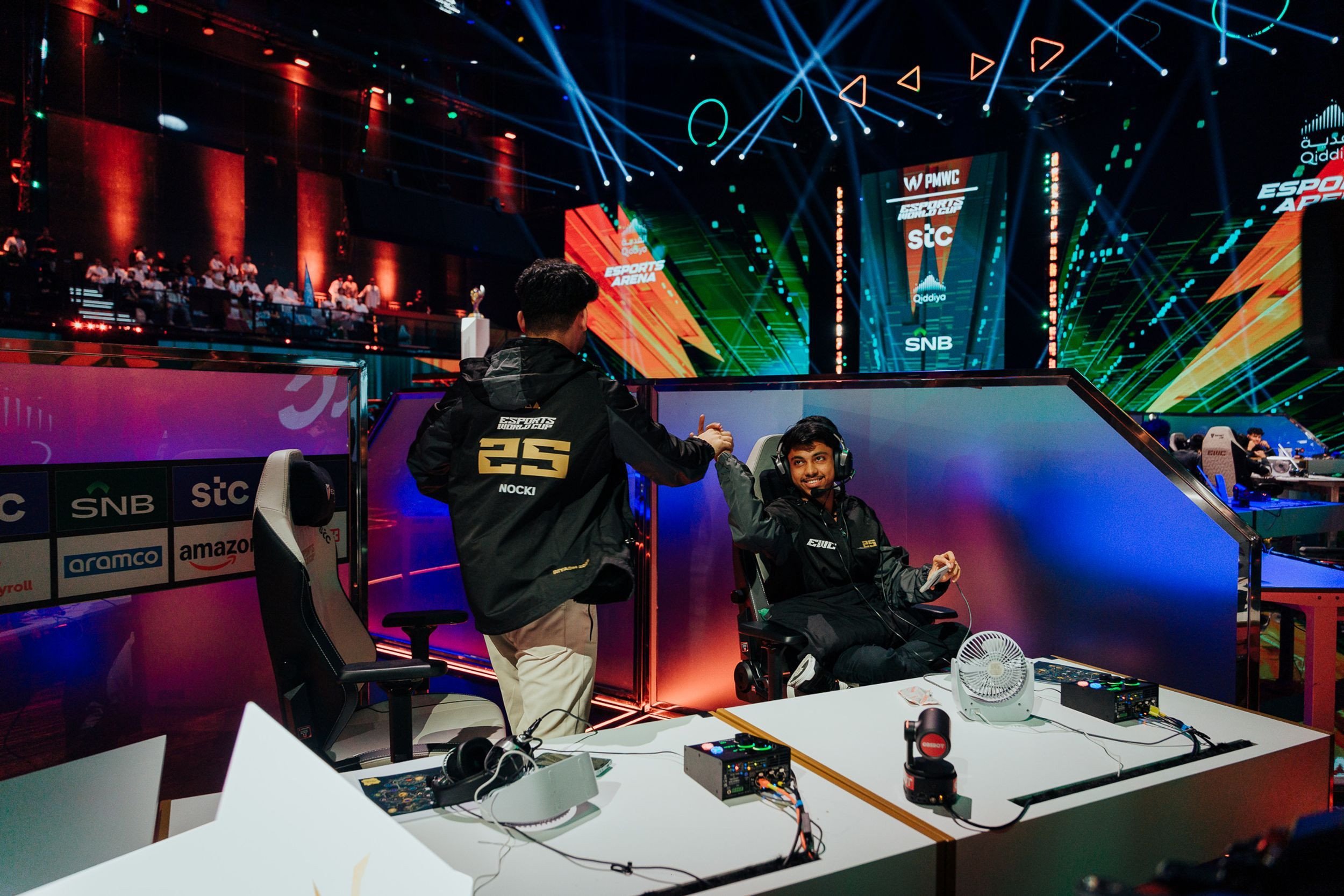
Globally, however, esports governance has already moved several steps ahead. In South Korea, the Korea e-Sports Association (KeSPA) works under the Ministry of Culture, Sports and Tourism and is supported by a dedicated law, the Act on Promotion of E-Sports. This framework empowers the state to fund infrastructure, regulate leagues, and protect player welfare. In Saudi Arabia and the UAE, esports falls under cultural and sports authorities, which not only ensures recognition at international multi-sport events but also unlocks government-backed funding for players and facilities. In China, ministries of culture and education are actively involved, even shaping vocational programmes around esports careers.
So why has Pakistan chosen its IT ministry instead of a sports body to take the lead? In the current context, the choice makes sense. The biggest barriers Pakistani players face are digital: poor connectivity, lack of servers, inadequate payment systems, and an absence of industry partnerships. These are all areas that MoITT is directly responsible for. The government is already running digital youth initiatives, so esports fits naturally into this umbrella, linking gaming with coding, digital literacy, and entrepreneurship. By treating esports as part of the digital economy, Pakistan can encourage gaming startups, connect with international partners, and frame esports as a modern industry rather than just entertainment.
But Bilal believes that any future policy will only work if players themselves are part of the process. “I believe the government or federations should first consult the players, not just one or two, but all those who represent Pakistan internationally. Each player faces different problems, and support should reflect that.”
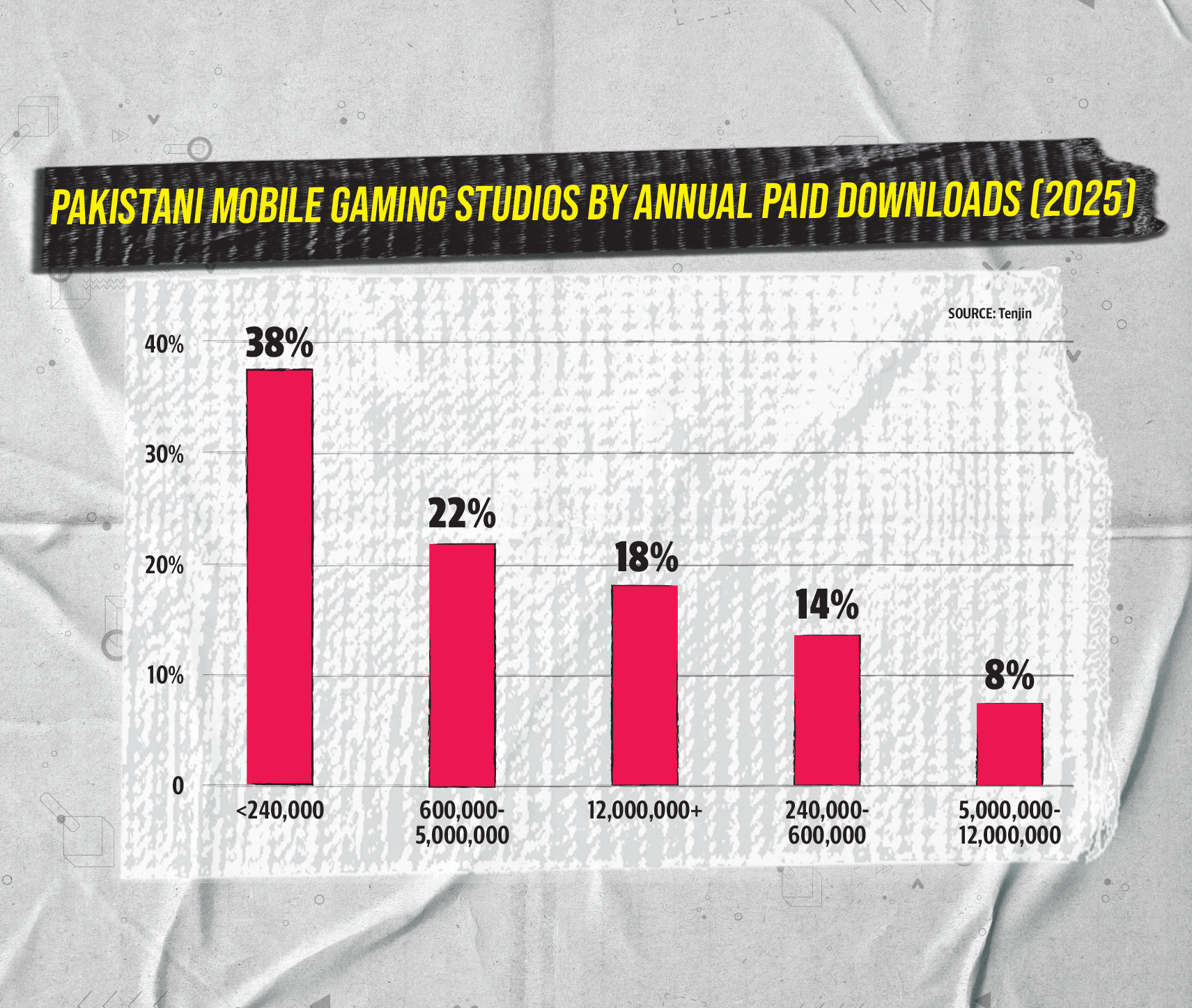 In the long run, though, keeping esports only under the IT ministry has clear limits. At the end of the day, this is still competition. It is still a sport. Without the involvement of sports authorities, there is always the risk that it remains boxed in as a side project of the tech sector. That has real consequences. Players could continue to struggle with travel grants, visas, and recognition as athletes at events like the Asian Games. A sports ministry brings systems that already exist for cricket, hockey, or athletics — welfare programmes, anti-doping rules, contract oversight, and access to proper funding. Esports players in Pakistan have none of that yet.
In the long run, though, keeping esports only under the IT ministry has clear limits. At the end of the day, this is still competition. It is still a sport. Without the involvement of sports authorities, there is always the risk that it remains boxed in as a side project of the tech sector. That has real consequences. Players could continue to struggle with travel grants, visas, and recognition as athletes at events like the Asian Games. A sports ministry brings systems that already exist for cricket, hockey, or athletics — welfare programmes, anti-doping rules, contract oversight, and access to proper funding. Esports players in Pakistan have none of that yet.
The most sensible way forward would be a shared model. The IT ministry can keep focusing on what falls naturally in its domain — infrastructure, connectivity, and industry partnerships. But the Sports Division has to be brought in at some point to anchor esports within Pakistan’s larger sporting framework. A Pakistan Esports Federation, set up with both sides involved, could then take responsibility for running leagues, regulating tournaments, and safeguarding player rights.
For now, MoITT’s leadership is an important first step. It gets esports onto the policy map. But if Pakistan wants the scene to grow into something that carries international weight and legitimacy, the framework has to stretch beyond technology and firmly into sport.
Looking ahead, Bilal believes the best way to prepare Pakistani players for global competition is not just equipment or visas, but a regular domestic circuit. “In Korea, there is a league happening every week. If something like that existed in Pakistan, it would be a game-changer. Players would be earning money, competing under real pressure, and getting used to professional production standards. That’s the kind of system we need here,” he said.
This raises the next question: what does the day-to-day esports ecosystem inside Pakistan actually look like, and how far is it from the professional circuits of Korea, Saudi Arabia, or China?
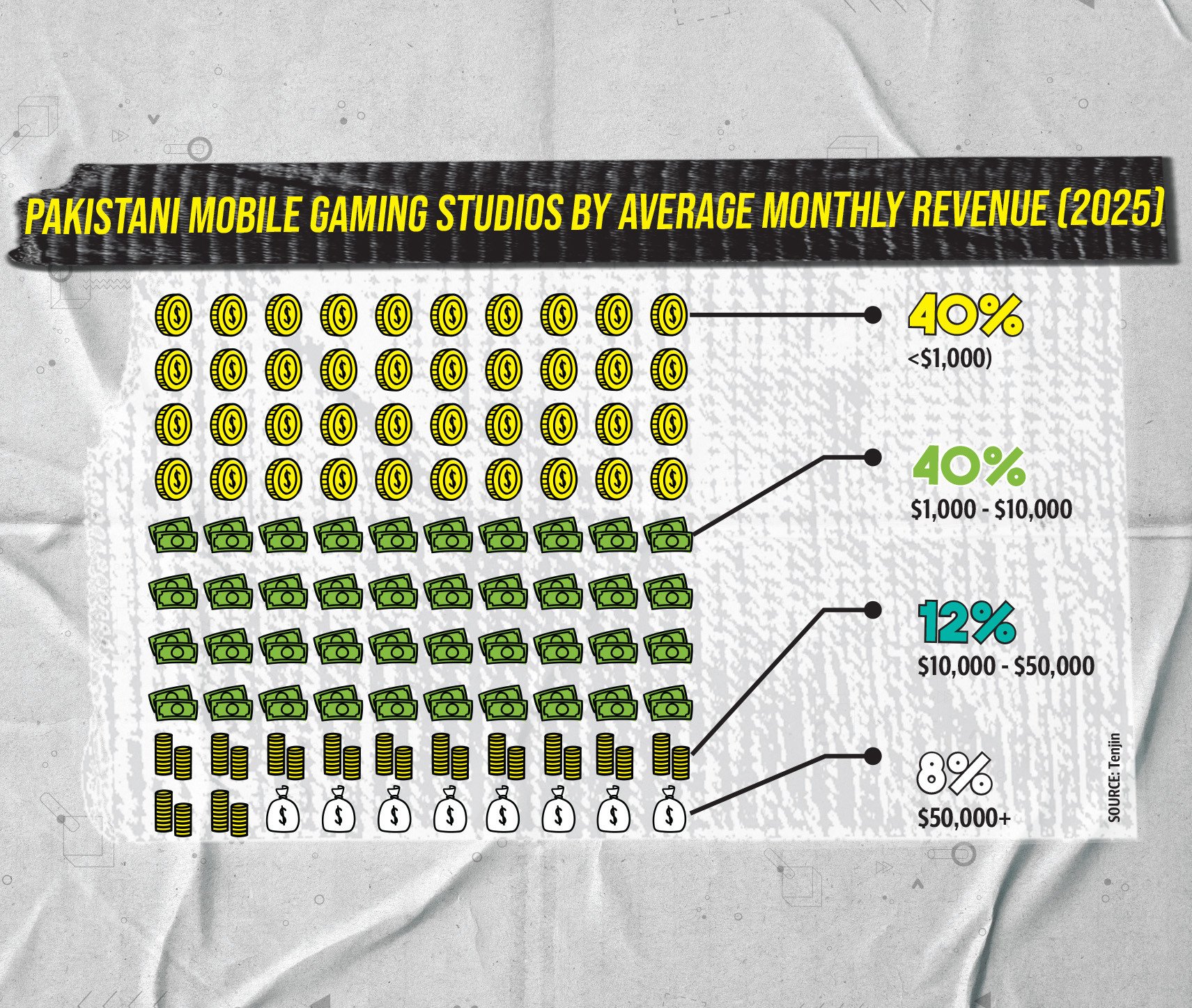
The future of Pakistan in esports
By the time this story was being filed, Pakistan’s first ever PUBG Mobile team to reach the Esports World Cup for PUBG Mobile World Cup (PMWC) 2025 had wrapped up its campaign. 4Thrives, the young squad that carried Pakistan’s hopes into the global arena, finished in seventh place. For a debut appearance, it was a respectable finish, proof that Pakistan could hold its own against the strongest teams in the world. More importantly, it was an experience that gave the players something no practice room back home could replicate the pressure and intensity of competing under the brightest lights in front of a global audience.
On the Tekken side, the fight was still unfolding. Out of seven Pakistani players who traveled to Riyadh, two names once again stood tall as the competition entered its second phase. Arslan Ash and Atif Butt, both carrying the weight of expectation, had qualified for the round of 16. If they clear this stage, the path ahead will lead to the round of 8, then the semi-finals, and eventually the final itself. Each match is not just a test of skill but a reminder of how far Pakistan has come in global esports. Just to remember that in the recent EVO Championship Series, Arsalan Ash and Atif butt were the finalists where Arslan Ash defeated Atif to lift his sixth straight Evo title.
Taken together, these moments underline the duality of Pakistan’s esports story. On one side, there is talent capable of standing shoulder to shoulder with the very best, whether it is in fighting games or mobile gaming. On the other, there is a system that still leaves players to find their own way. The seventh-place finish in PUBG Mobile and the continued progress of Tekken players are more than just results; they are signals of what could be possible if Pakistan built the right foundations at home.
What lies ahead will depend on whether the momentum of these victories is matched by investment, infrastructure, and recognition. Players like Arslan Ash and Atif Butt cannot carry the burden alone forever. Teams like 4Thrives cannot remain exceptions, surviving on grit and isolated support.
That spirit of looking out for each other has already become part of the culture among Pakistani esports players. “Recently I helped send three Pakistani players to the Last Chance Qualifiers for the Esports World Cup. Unfortunately, they couldn’t qualify, but everything, tickets, hotels, food, was sponsored by me and my friends. InshaAllah, if I grow stronger, I’ll create a proper platform in Pakistan so more players can have these opportunities,” shared Bilal.
If the new national policy translates into real facilities, professional leagues, and pathways for young talent, Pakistan could move from being a surprise package to a permanent fixture on the global stage.
For now, though, every victory is a reminder of both triumph and limitation. Pakistan’s players are proving that talent can overcome barriers, at least for now. The question is whether the country will give them a system that allows their victories to become the rule, rather than the exception.
Sports
U.S. names sporting events athletes exempt from visa ban
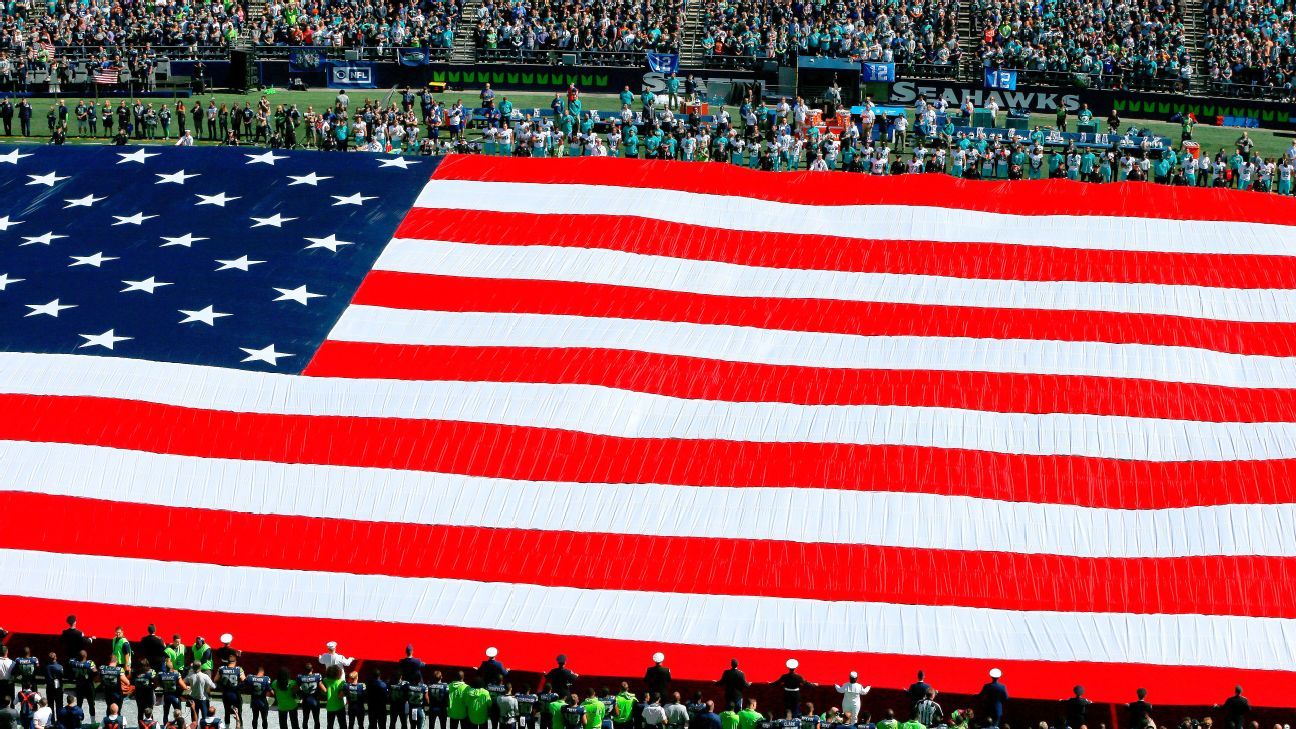
WASHINGTON — The Trump administration has identified a host of athletic competitions it classifies as “major sporting events” — aside from soccer’s 2026 World Cup and the 2028 Olympic Games — that athletes and coaches will be allowed to travel to the U.S. to take part in despite a broad visa ban on nearly 40 countries.
In a cable sent to all U.S. embassies and consulates Wednesday, the State Department said athletes, coaches and support staff for the World Cup, the Olympics and events endorsed or run by a long list of collegiate and professional sporting leagues and associations would not be subject to the full and partial travel bans that apply to citizens of 39 countries and the Palestinian Authority.
However, the cable made clear that foreign spectators, media and corporate sponsors planning to attend the same events would still be banned unless they qualify for another exemption.
“Only a small subset of travelers for the World Cup, Olympics and Paralympics, and other major sporting events will qualify for the exception,” it said.
President Donald Trump’s administration has issued a series of immigration and travel bans as well as other visa restrictions as part of ongoing efforts to tighten U.S. entry standards for foreigners. At the same time, the administration has been looking to ensure that athletes, coaches and fans are able to attend major sporting events in the U.S.
Trump’s Dec. 16 proclamation banning the issuance of visas to the 39 countries and the Palestinian Authority had carved out an exception for athletes and staff competing in the World Cup, the Olympics and other major sporting events. It delegated a decision on which other sporting events would be covered to Secretary of State Marco Rubio.
Wednesday’s cable lists the events that are covered, including “all competitions and qualifying events” for the Olympic Games, Paralympic Games, Pan-American Games, and Para Pan-American Games; events hosted, sanctioned or recognized by a U.S. National Governing Body; all competitions and qualifying events for the Special Olympics; and official events and competitions hosted or endorsed by FIFA, soccer’s governing body, or its confederations.
The exemption also will cover official events and competitions hosted by the International Military Sports Council, the International University Sports Federation and the National Collegiate Athletic Association as well as those hosted or endorsed by U.S. professional sports leagues such as the National Football League, the National Basketball Association and Women’s National Basketball Association, Major League Baseball and Little League, National Hockey League, Professional Women’s Hockey League, NASCAR, Formula 1, the Professional Golf Association, Ladies Professional Golf Association, LIV Golf, Major League Rugby, Major League Soccer, World Wrestling Entertainment, Ultimate Fighting Championship and All Elite Wrestling.
The cable said other events and leagues could be added to the list.
Of the 39 countries, a full travel ban applies to Afghanistan, Burkina Faso, Chad, the Republic of the Congo, Equatorial Guinea, Eritrea, Haiti, Iran, Laos, Libya, Mali, Myanmar, Niger, Sierra Leone, Somalia, Sudan, South Sudan, Syria, Yemen, and people with Palestinian Authority-issued passports.
A partial ban is in place for citizens of Angola, Antigua and Barbuda, Benin, Burundi, Cuba, Dominica, Gabon, Gambia, Ivory Coast, Malawi, Mauritania, Senegal, Tanzania, Tonga, Togo, Venezuela, Zambia and Zimbabwe.
Sports
Trump to attend College Football Playoff championship game in Miami with Rubio
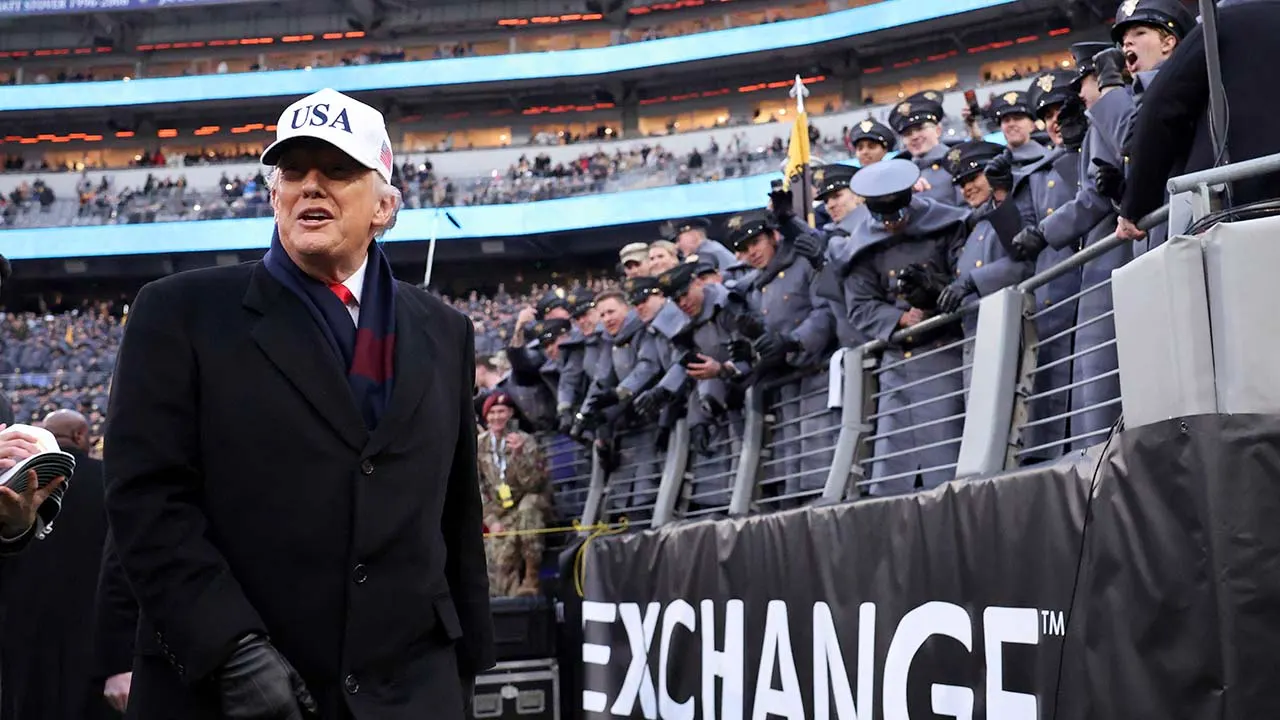
NEWYou can now listen to Fox News articles!
President Donald Trump will return to the sidelines Monday with Secretary of State Marco Rubio for the College Football Playoff championship in Miami, where the Indiana Hoosiers will face the Miami Hurricanes.
Trump’s expected attendance was first reported by Axios.
President Donald Trump, right, and Defense Secretary Pete Hegseth attend an NFL game between the Washington Commanders and the Detroit Lions at Northwest Stadium in Landover, Md., Nov. 9, 2025. (AP Photo/Jacquelyn Martin)
Monday’s appearance at the national championship game marks another high-profile outing for the president, who has attended several major sporting events during his second term.
CLICK HERE FOR MORE SPORTS COVERAGE ON FOXNEWS.COM
In April, Trump sat alongside UFC President Dana White outside the octagon for UFC 314 in Miami and again two months later at UFC 316 in New Jersey. He also attended several events in September, including the Ryder Cup at Bethpage Black in New York and a New York Yankees game on Sept. 11, 24 years after the 9/11 attacks.
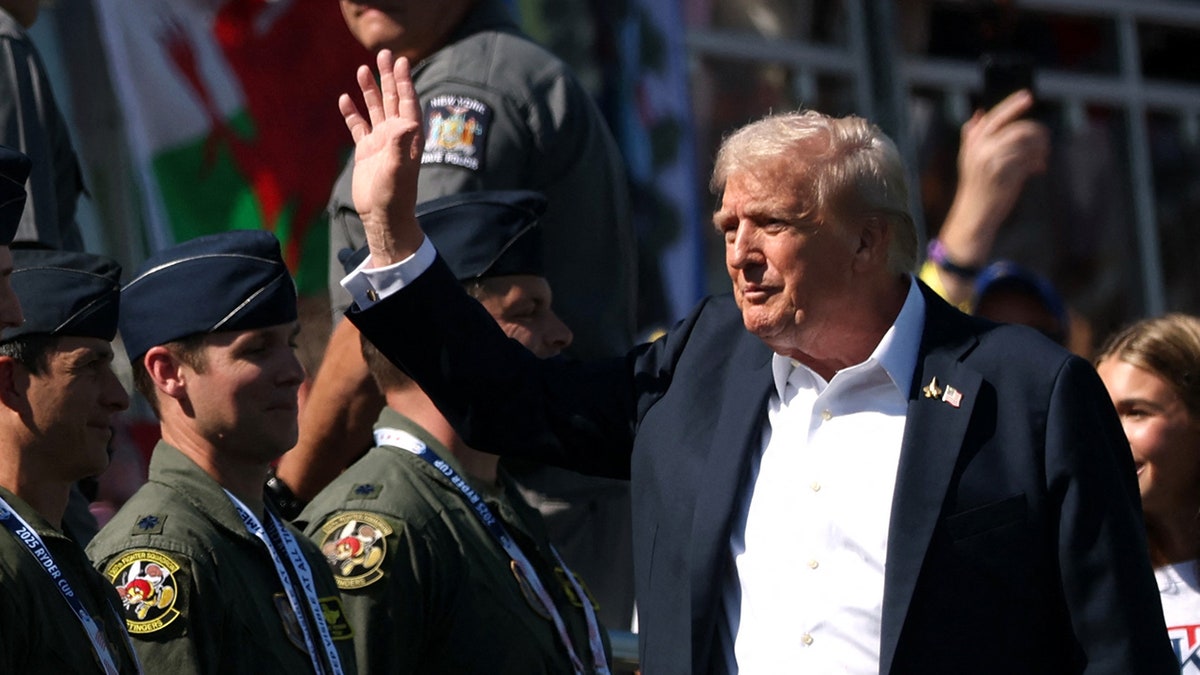
President Donald Trump waves to the crowd as he arrives on the first hole on the first day of competition for the Ryder Cup at Bethpage Black. (Brendan Mcdermid/Reuters via Imagn Images)
TRUMP WARNS COLLEGE SPORTS ARE IN ‘BIG TROUBLE’ IN CRYPTIC POST
President Trump has taken a special interest in sports in his second term.
In December, he warned the current state of name, image and likeness (NIL) was not sustainable and could pose a threat to college athletics, especially sports outside of football. He has also made ensuring the fairness and safety in girls and women’s sports a top priority of his administration.

President Donald Trump attends the 126th Army-Navy Game between the Army Black Knights and the Navy Midshipmen at M&T Bank Stadium in Baltimore Dec. 13, 2025. (Tasos Katopodis/Getty Images)
CLICK HERE TO DOWNLOAD THE FOX NEWS APP
Top-seeded Indiana, led by Heisman Trophy winner Fernando Mendoza, will take on Miami at Hard Rock Stadium in Miami Gardens, Florida, Monday at 7:45 p.m. ET.
Follow Fox News Digital’s sports coverage on X, and subscribe to the Fox News Sports Huddle newsletter.
Sports
Bettors and players fixed dozens of NCAA basketball games, prosecutors say
In the latest gambling scandal to rock sports, a federal indictment accuses bettors and athletes of “point-shaving” in NCAA and Chinese Basketball Association games.
Source link
-

 Politics1 week ago
Politics1 week agoUK says provided assistance in US-led tanker seizure
-

 Entertainment1 week ago
Entertainment1 week agoDoes new US food pyramid put too much steak on your plate?
-

 Entertainment1 week ago
Entertainment1 week agoWhy did Nick Reiner’s lawyer Alan Jackson withdraw from case?
-

 Business1 week ago
Business1 week agoTrump moves to ban home purchases by institutional investors
-

 Sports5 days ago
Sports5 days agoClock is ticking for Frank at Spurs, with dwindling evidence he deserves extra time
-

 Sports1 week ago
Sports1 week agoPGA of America CEO steps down after one year to take care of mother and mother-in-law
-

 Business1 week ago
Business1 week agoBulls dominate as KSE-100 breaks past 186,000 mark – SUCH TV
-

 Tech3 days ago
Tech3 days agoNew Proposed Legislation Would Let Self-Driving Cars Operate in New York State






